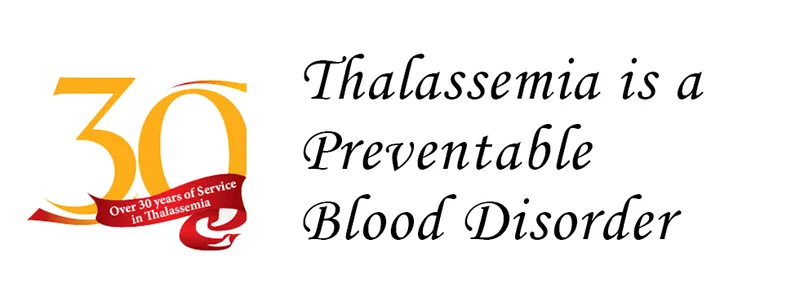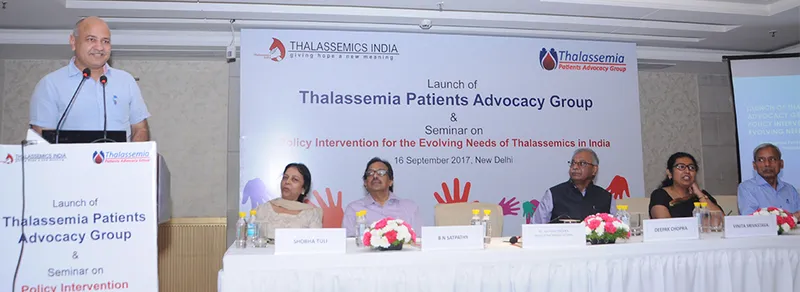Patients of this rare blood disease are bearing the brunt of the severely-hit medical infrastructure of our country
Thalassemia Major patients require bi-weekly blood transfusions to survive – a task that has proved monumentally difficult during the pandemic
According to the World Health Organization, India is home to the largest number of patients suffering from Thalassemia Major, with conservative estimates placing the number over 1 lakh. Ever since the advent of COVID-19, this already-compromised section of our population has found it doubly challenging to survive.
“India has the largest number of Thalassemia Major patients. This is because of our large population and also an acute lack of awareness. Every year, 8000 -10,000 Thalassemic babies are born in India, because 3-5 percent of the population of every State are carriers of this disease, and in West Bengal that number is as high as 17 percent. By spreading awareness on the disease and its effects, births of Thalassemic children may be prevented,” shares Shobha Tuli, Secretary of Thalassemics India, an NGO that operates in close association with doctors, state and central governments, hospitals, as well as Thalassemia associations and centers to spread awareness on this disease.
A rare genetic blood disorder, Thalassemia hampers the ability of the human body to make hemoglobin from red blood cells – a shortage of which can lead to the failure of multiple organs and eventual death. Occurring largely in two mutated forms – Minor and Major – the disease presents no symptoms in the case of the former, but may prove deadly for the latter. Thalassemia Major is the result of two mutated genes combining, which happens when both parents are carriers.

Every year, 8000 -10,000 Thalassemic babies are born in India
For patients of Thalassemia Major, the only effective cure is stem cell transplantation of the bone marrow, which works only for a handful of people who are able to find ideal donor matches. In reality, the only practical treatment and method of survival for them is to receive regular blood transfusions through which healthy red blood cells are supplanted in their systems, every two-three weeks. The acute shortage of donor blood during the pandemic, has left scores of seriously ill Thalassemics at the brink of survival.
The fight so far
According to Shobha, back in the 70s and 80s, when she gave birth to her daughter, there was no knowledge of this disease at all. Even her doctor could only point her to one line in a book that named the disease. Hence, in order to adequately address the needs of Thalassemia Major patients, parents of Thalassemics like her, banded together to form Thalassemics India in 1987, of which she has been the Secretary since 1992.
“With our concerted efforts, awareness about the disease has increased, but there are still so many people in India who know nothing about it. That complete awareness will happen only when every pregnant woman in the country will ask to be checked for a test that will alert her to the Thalassemia status of the child. We are a long way from that. Our government needs to do much more to spread awareness on this subject,” Shobha says with candour.
She outlines two specific methods through which our country can be free of Thalassemia: if the Ministry of Health and Family Welfare begins a dedicated campaign to spread awareness on the disease; and through widespread set-up of infrastructure for testing. As of now, the testing centres are few and far between.
To further represent the interests of Thalassemia Major patients, a new wing of Thalassemics India Society was set up in 2017. Known as the Thalassemia Patients Advocacy Group (TPAG) this group has been active on various national and international platforms by practicing digital advocacy, collaborating with brand ambassadors, participating in panel discussions, as well as engaging with and sending representations to government bodies.
Nehal Dhingra, one of the Founder Members of TPAG, says, “ours is a group formed by patients of Thalassemia who are professionals in fields like law, medicine, psychology, photography, engineering and we are connected with more than 1,00,000 Thalassemic patients pan India.”
The COVID-19 struggle
A shortage of blood is a grave problem for Thalassemia patients at all times, and it has been further exacerbated by the pandemic. People are reluctant to donate blood for fear of catching the virus, and due to the lack of proper medical infrastructure, their fears are often well-founded.
Nanni Singh, CEO of ShowCase Events and parent to a Thalassemic patient, describes the situation succinctly, “the fear of the pandemic has led to a huge shortage of blood, as donors are scared to come to hospitals to donate. Blood banks have dried up and patients are running from pillar to post. Many hospitals shut down their Thalassemia transfusion units to convert into beds for COVID-19 handling, so our patients have nowhere to go for their transfusions.”

TPAG practices digital advocacy as well as engaging with and sending representations to government bodies.
For Thalassemics, the fear of not being able to survive due to lack of blood, is far greater than the fear of the virus. Nehal shares that she and her fellow members at TPAG have personally been making hundreds of calls on a daily basis to find donors for themselves and others. Even when the blood is arranged, navigating the ill-prepared medical infrastructure proves to be very difficult.
“We have lost a few of our members to COVID-19 due to Thalassemia-specific complications. These situations could have been easily avoided. With common entry and exit points, visiting hospitals for blood transfusions means greater chances of exposure to the virus,” Nehal points out.
Thalassemia Major is now recognised as a disability under the Rights of Persons with Disabilities Act, (RPWD), 2016. As per Article 25(1)(c) of this Act, people with disabilities are entitled to ‘priority in attendance and treatment’, when it comes to healthcare.
One of the major grievances of patients had been the denial of vaccination to those under 45, before the month of May 2021. Since 85 percent of Thalassemia Major patients in India are younger than 45 years of age, they remained exposed and vulnerable to the COVID-19 virus. Though the vaccination net has since been widened, the lack of accessibility and unavailability of vaccines continues to pose a problem for them.
The way forward
The biggest concern at present is that every Thalassemia Major patient should receive safe blood on time, as transfusions can be delayed only for a week. Quite simply, the longer they do not have access to blood, the more prone they are to catching infections. Listing out the needs and priorities of Thalassemia patients in the Covid-19 scenario, Shobha says, “if there are no donors, the State governments need to advertise or appeal to people to come forward to donate blood, otherwise our children will die.”
She further adds, “Thalassemics India has been proactive throughout the pandemic in helping patients cover basic costs of medications, specialised chelation drugs for their treatment, hospital charges, COVID-19 testing, oxygen concentrators etc. We have compensated whoever has approached us until now with a doctor’s prescription. But there is only so much we can do. We appeal to the public and other charitable organisations like the Rotary Club to donate as much as possible.” Let’s hope their urgent appeals are paid heed to by the authorities and the public at large.
Edited by Diya Koshy George








